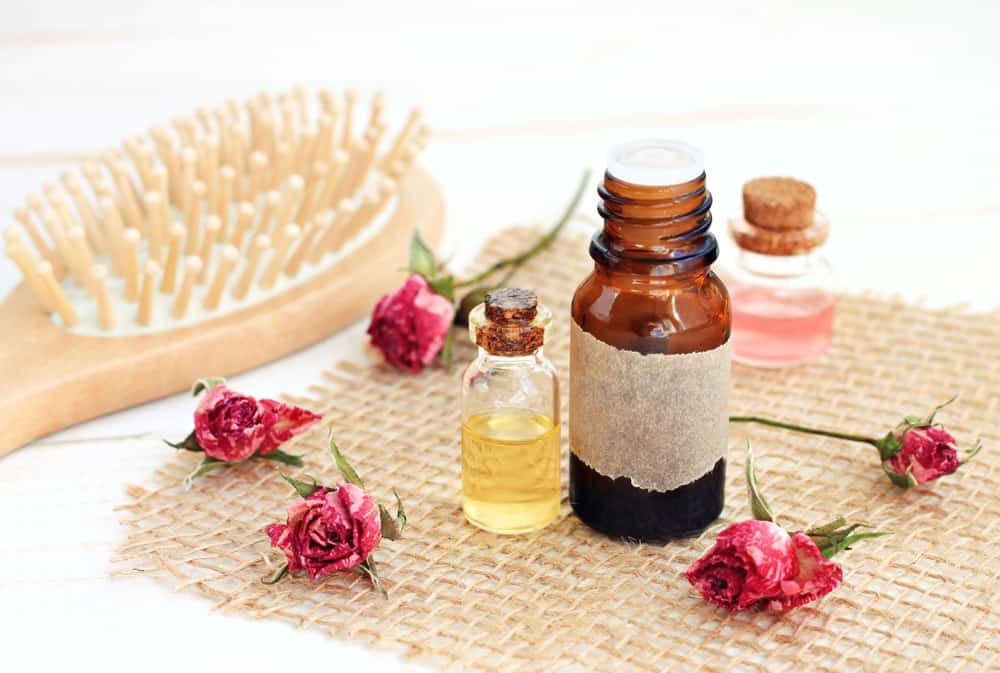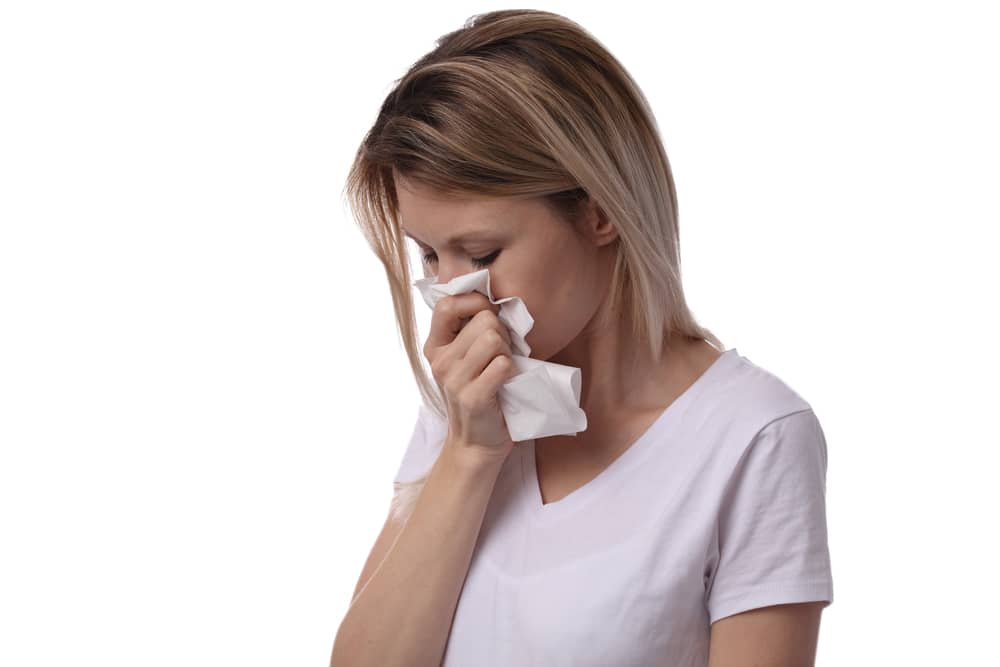Contents:
- Medical Video: Dangers of Essential Oils: Top 10 Essential Oil Mistakes to Avoid | Dr. Josh Axe
- The choice of essential oils to grow hair
- How do you use essential oils to grow hair?
- 1. Select the essential oil and solvent oil to be used
- 2. Mix essential oils
- 3. Massage the scalp
- 4. Rinse or leave overnight
- First test the oil on the back of your hand, to check for allergies
Medical Video: Dangers of Essential Oils: Top 10 Essential Oil Mistakes to Avoid | Dr. Josh Axe
Hair is the crown of the head. That's why no one wants to have thin, dull, and easily fall hair. If you have tried various ways to grow hair but nothing works, why not try using essential oils? Yes! Several types of natural essential oils sold on the market can help you get thick and strong hair.
The choice of essential oils to grow hair
There are many essential oils that can be used to thicken hair. Usually, this oil is also used in various hair care products.
Some examples of essential oils that you can use, include:
- Rosemary oil, helps stimulate follicles to produce new hair.
- Bergamot oil, improves hair growth, protects the scalp to stay healthy, reduces inflammation, and accelerates wound healing on the scalp.
- Jojoba oil, to promote faster hair growth.
- Peppermint oil, enlarges the blood vessels under the skin so that increase the thickness of the scalp and the number of hair follicles.
- Chamomile oil, lavender oil, sage oil, almond oil, clary oil, and apricot oil kernels that are useful for stimulating faster hair growth.
How do you use essential oils to grow hair?
1. Select the essential oil and solvent oil to be used
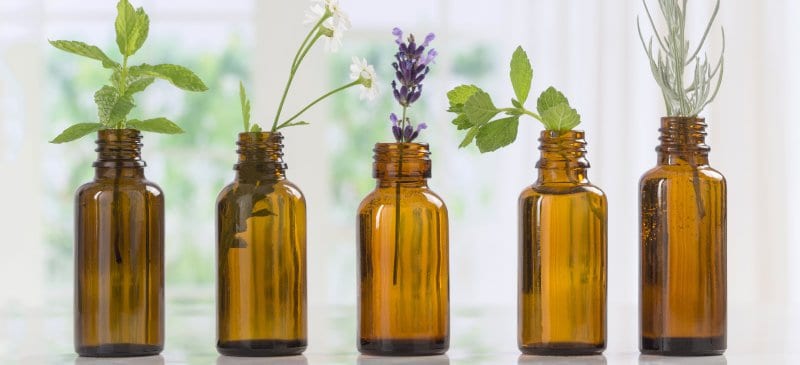
First, you choose essential oils that are right for your hair. You can also combine several types of oil into one. For example, mixing rosemary oil with lavender and clary oil.
Then, select the solvent oil. Essential oils are very thick. In fact, you only need two to three drops for a natural hair treatment. So, essential oils need to be diluted first with volatile solvent oil before being applied to the head.
For those of you who have dry hair, you can choose coconut oil, argan oil, or avocado oil which can moisturize the scalp. For oily hair, dissolve your chosen essential oil with almond oil or lighter apricot seed oil. While if your hair falls out, choose jojoba oil which can prevent hair loss from getting worse.
2. Mix essential oils
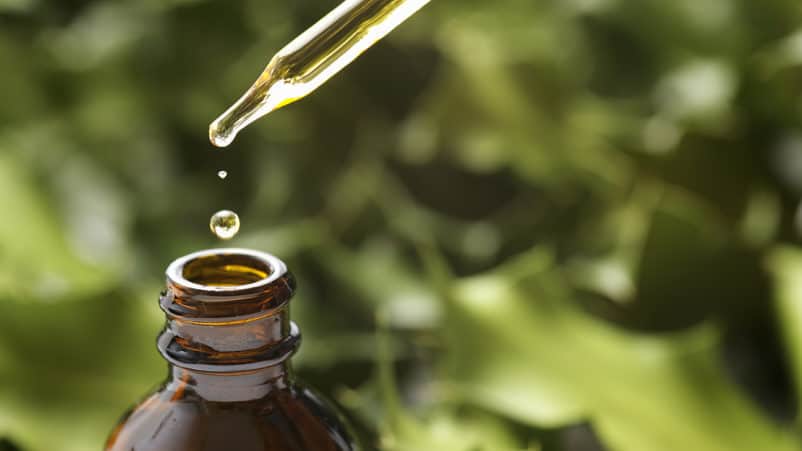
After you find a combination of essential oils and solvent oils that are suitable for your condition, it's time to thin the oil. The trick, pour 15 drops of essential oil per one ounce (2 tbsp) of solvent oil in an airtight container. Stir until smooth and runny.
Use plastic gloves before you thin the essential oil to guarantee its sterility. Store the final product in a cool, dark place.
Dissolving essential oils with solvent oil also aims to reduce the risk of allergic side effects or other skin problems.
3. Massage the scalp
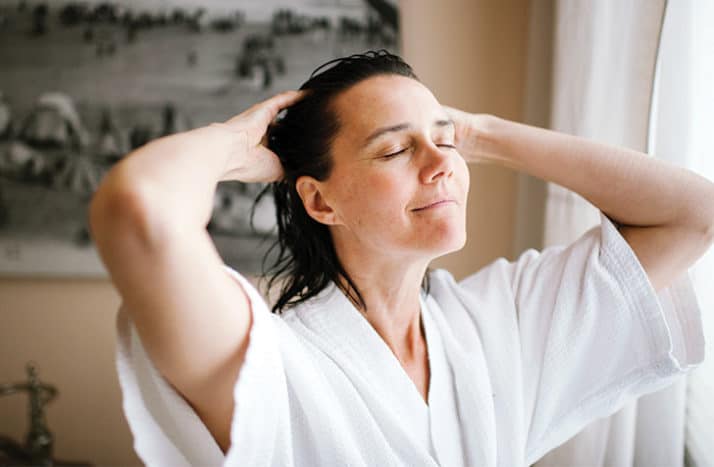
When it will be used to grow hair, dip the fingertips into the oil mixture or pour a few drops directly into the palm of your hand. Rub in your hands and then massage the scalp slowly for 2 to 3 minutes. Massage evenly on all parts of the head; starting from the front, center, front and back.
If you feel difficulty, it never hurts to ask for help from others to massage and apply oil to your scalp.
4. Rinse or leave overnight

You can immediately rinse with clean water and shampoo as usual after leaving the hair for 15-20 minutes until the oil permeates. However, you can also silence it overnight so the results are more optimal. That's why the best time to use essential oils on the scalp is at night so as not to interfere with activity.
Moreover, some essential oils such as bergamot oil, lemon, orange, and grapefruit should be used before bed because it makes the skin very sensitive to sun exposure,
If you want to be left overnight, wrap a small towel clean on your head to prevent oil from seeping into your pillow. In the morning, rinse thoroughly and continue shampooing as usual.
First test the oil on the back of your hand, to check for allergies
Not all essential oils are safe to be directly applied to the body or scalp. The most common side effects of using essential oils are allergic reactions including skin rashes, itching, swelling and redness.
To reduce the risk of these side effects, you need to test it first on the skin of the back of your hand. Simply apply a small amount of essential oil to the skin of the hand and wait 1 × 24 hours to see if there are any reactions that arise. If not, you can start using it on a larger scale.
If a reaction appears, immediately rinse the skin with soap and running water. Stop using. What if the reaction that comes up causes you to have difficulty breathing, dizziness, and feels unsteady to want to faint, immediately to the doctor.
Reporting from Medical News Today, according to the National Association for Holistic Aromatherapy, sage oil and peppermint oil should not be used during pregnancy or breastfeeding.

